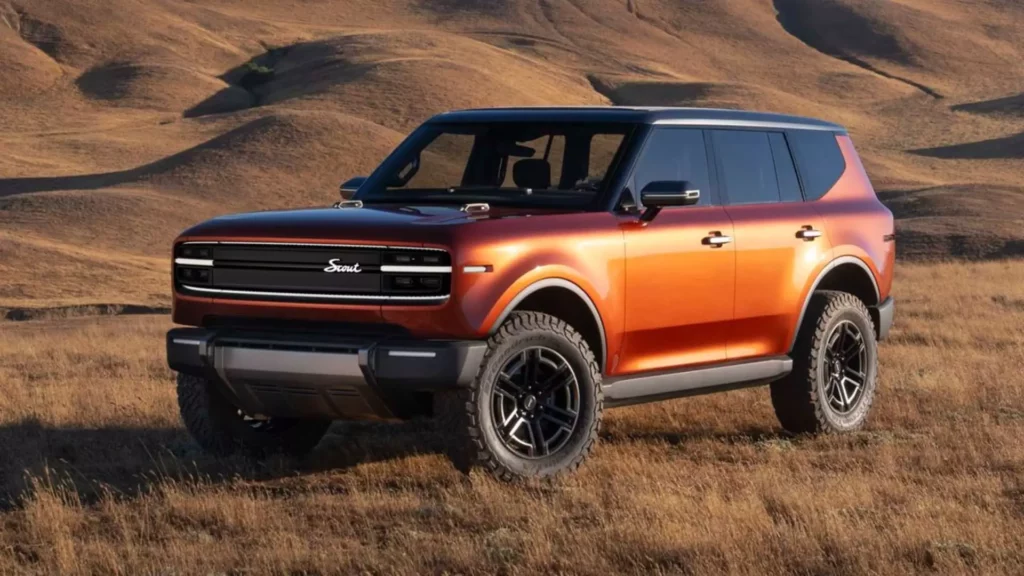Scout Motors, a venture significantly backed by Volkswagen, has marked its return to the automotive scene by unveiling its inaugural electric vehicle (EV) lineup. While initially planning to engage the U.S. market exclusively with electric offerings, Scout has pivoted strategically in response to a slower-than-anticipated rise in EV adoption and the rising costs associated with producing these vehicles. This critical reassessment has led them to introduce a new category within their portfolio: Extended-Range Electric Vehicles (EREVs). This exploration into hybrid technology reflects a foundational shift in addressing market demands while sustaining the brand’s long-term objectives.
The Scout brand, a staple of American automotive history from 1961 to 1980, aims to resonate with nostalgic automobile enthusiasts while integrating cutting-edge tech. Under the leadership of Scott Keogh, a seasoned executive with a robust background in the automotive world, Scout seeks not just to create vehicles but to develop a brand that harmonizes with the modern consumer’s needs. Keogh’s assertion that “being a startup that moves quickly, we can pivot” exemplifies a flexible approach. This adaptability is crucial in an industry as volatile as the automotive market, particularly during a pivotal shift toward electrification.
Extended-Range Electric Vehicles, as defined by Scout, represent a careful blend of electric power and traditional combustion engines. These vehicles utilize electric motors and battery components while retaining an internal combustion engine that functions as a generator. This model serves two purposes: it introduces potential consumers to electric drivetrains while simultaneously providing a backup that alleviates concerns over range anxiety. Keogh’s emphasis on EREVs as a “smart play” underscores a pragmatic approach to market readiness and consumer acceptance, ensuring that Scout’s offerings are appealing and practical for a diverse customer base.
Targeting Profitability with Strategic Decisions
Scout’s initial offerings, which include a mid-size SUV and a full-size pickup truck, are specially designed to capture a significant share of the fluctuating U.S. vehicle market. Keogh’s ambitious target to achieve operational profitability within a year post-production is a tall order, especially considering that competitors in the electric vehicle space, like Rivian and Lucid, are still grappling with substantial losses on their respective models. Scout’s focused strategy of targeting high-margin vehicle segments speaks volumes about its market insight and potential business acumen.
Production Capabilities and Market Strategy
Scout’s future manufacturing facility in South Carolina, boasting an investment of $2 billion and an ambitious production capacity of 200,000 units, positions it favorably against existing players. By planning to utilize batteries from Volkswagen’s joint venture, Scout aims to streamline its operations while keeping costs in check. The decision to sell directly to consumers, eschewing traditional dealership models, reflects a shift in contemporary retailing methods, capitalizing on direct engagement and potentially higher margins.
The competitive terrain for large electric vehicles is laden with challenges. While Scout’s Traveler SUV and Terra pickup aim to penetrate a market dominated by iconic brands like Ford, GM, and Ram, they must also contend with consumer hesitance given the recent market fluctuations. These vehicles plan to leverage features like bi-directional charging and superior torque to appeal to both off-road and utility enthusiasts. By offering a starting price range of between $50,000 and $60,000, Scout aims to entice buyers drawn to premium but accessible options.
Looking ahead, Keogh has hinted at a broader vision for Scout beyond just the initial two offerings. The acknowledgment that the brand could consider a diversification strategy showcases a commitment to evolving within the marketplace. This potential expansion echoes the foundational automotive philosophy of meeting customer demands while promoting a forward-thinking, environmentally-conscious ethos. With a substantial focus on lower pricing and brand appeal, Scout is poised to distinguish itself among a crowded field.
Scout Motors stands at a critical junction in its journey, marked by adaptive strategies and innovative thinking. As it endeavors to showcase EREV technology alongside its nostalgic heritage, the company commits to embodying the future of electric mobility while remaining steadfast in its efforts to cater to a diverse consumer base. With projected launches set for 2027 and a commitment to maintaining a competitive edge, Scout seeks not only to redefine its legacy but to pave the way for a new era in American automotive innovation.

